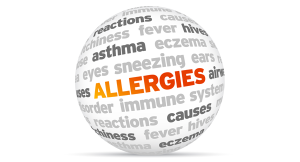
Found Some Common Knowledge!
It is common knowledge that an enlarged lymph node usually means there is an infection in the area of the lymph node and the body is doing what it was designed to do, which is fight it off. Bacteria, viruses, debris, cancer cells, and other foreign substances that are in the lymph are filtered through the nodes.
When the nodes become overwhelmed they will begin to swell and enlarge. They can also become painful. The node will reduce in size when the infection has run its course or responds to treatment.
In the event of other health issues, it will remain large until treated successfully.
Harmless Swollen Lymph Nodes in the Body
There are 500-700 lymph nodes in the body and many of them will swell unnoticed as they do their job of protecting the body from harmful debris that is traveling through the body. The white blood cells will reproduce to fight off infections and when they are successful they will return to normal numbers and the swelling will be reduced. The white blood cells are known as lymphocytes. Harmless causes of enlarged lymph nodes include the following:
- Minor bacterial
- Mild viral infection
- Some fungi
When the lymph node remains swollen and there are other health problems or symptoms, there could be a more serious cause for the swelling
Enlargement from Serious Health Issues
Not all lymph nodes will shrink down to their normal size, which is the size of a pea. Some will remain swollen and be an indicator there may be a serious health issue that will need to be addressed. Due to the seriousness of cancer, if that is the cause of a lymph node that remains inflamed, a medical professional should examine the node and do tests to determine the cause. Only a healthcare professional can accurately diagnose the cause of the swelling.
Some of the serious health issues:
- Cancer
- MRSA
- Lymphoma
- Syphilis
- HIV/AIDS
Some of the less serious causes include:
- Chicken pox
- Skin infection
- Alcoholism
- Cold
- Infected tooth
Most of the time swollen lymph nodes are nothing to be concerned about, it is just the immune system doing its job. When there are other symptoms, medical care should be sought.
Schedule a Doctor Appointment
When a lymph node remains enlarged for over two weeks, is painful to the touch, hard, or the skin is red or inflamed an appointment with the doctor should be scheduled and the node should be checked by a doctor. Other indicators that a doctor should examine a lymph node include night sweats, weight loss, fatigue, and prolonged fever.
Relief from painful lymph nodes can be relieved with compresses and over the counter pain relievers.


